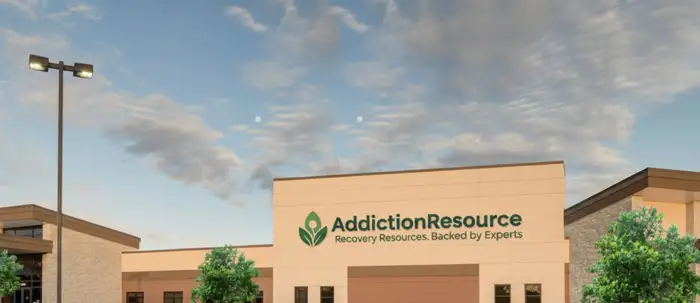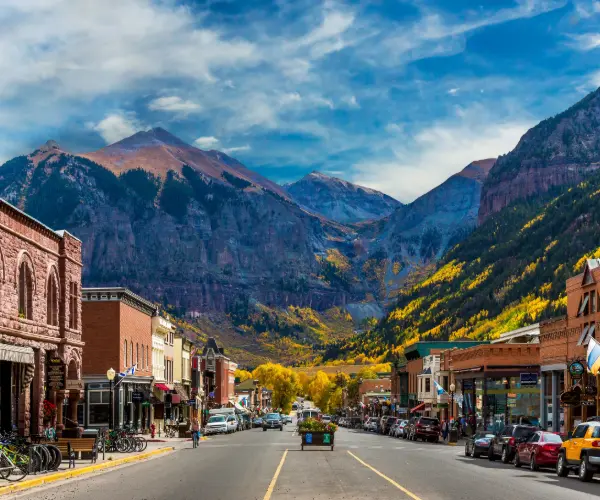Colorado, renowned for its breathtaking landscapes and vibrant culture, deals with the dire reality of the drug abuse crisis.
Colorado’s drug problem has worsened dramatically in recent years. The state jumped from the ninth to the fifth highest ranking for drug abuse nationwide between 2019 and 2023. Even more alarming, drug overdose fatalities in Colorado now exceed the national average. This reality underscores the desperate need for comprehensive drug rehabilitation programs.
Keep reading to discover how Colorado addresses its drug rehabilitation needs and identify where you can access the necessary addiction treatment.
Table Of Contents:
Colorado Drug Use Statistics
Based on data from the Colorado Department of Public Health & Environment (CDPHE), 1,477 Coloradans died of drug overdoses in 2020. This figure marks the highest number of overdose deaths ever recorded in the state and represents a 38% increase from 2019.
The opioid crisis has been a significant driver of these overdose deaths. The number of deaths due to opioids, including opioid analgesics and heroin, increased by 54% in 2020. In the same year, overdoses involving fentanyl accounted for about 68% of all opioid analgesic deaths, with the number of fentanyl-related overdose deaths more than doubling between 2019 and 2020.
Cocaine use among young adults has also been a growing concern, with some estimates indicating that past month cocaine use by 18–25-year-olds has increased. Additionally, the state averages one death from excessive alcohol use for every 2,201 people aged 18 and older (5.82 deaths for every 10,000 adults). 67.7% of those who die from excessive alcohol use in Colorado are male.
Rehab Centers in Colorado
To date, there are 393 treatment centers in Colorado. These institutions offer a broad spectrum of care, covering inpatient and outpatient programs, medical detoxification, dual diagnosis treatment, and specific addiction treatment.
If you are looking for reputable drug rehab methods, explore the rehab facilities in Colorado below:
Inpatient Drug Rehab Colorado
A comprehensive network of 51 centers for inpatient rehab Colorado can offer patients immersive and supportive treatment for substance abuse.
Inpatient rehab provides a structured environment where patients live on-site from 30 to 90 days, receiving round-the-clock care and support. This type of rehabilitation is ideal for those looking for a focused setting to work on their recovery, offering various therapies and activities aimed at fostering long-term sobriety and wellness. 24 of these facilities also provide inpatient drug detox services.
Outpatient Rehab Colorado
365 drug rehabs in Colorado provide extensive support by allowing patients to continue living at home while attending therapy sessions and treatment programs during the day.
This model is perfect for those with work or family commitments who still need care. Outpatient rehabs offer a range of treatments, including individual and group therapy, designed to help individuals maintain their daily routines while actively working on recovery and building a supportive community for sustained sobriety.
In Colorado, 178 centers provide intensive outpatient services that require at least 9 hours per week for a more robust level of addiction care. You can find 30 centers that specialize in outpatient detoxification, while 130 of them are equipped to administer methadone maintenance treatment for cravings and withdrawal symptoms management.
Alcohol Rehab Centers in Colorado
184 Colorado alcohol rehab centers can provide dual treatment for drug and alcohol addiction, while 177 of them specialize exclusively in alcohol use disorder.
Treatment methods typically include medically supervised detox, individual and group therapy, medication-assisted treatment, and holistic therapies such as yoga or meditation. 47 alcohol treatment centers in Colorado can provide alcohol detox services.
Drug Rehab Centers in Colorado for Mental Health
Mental health issues can lead individuals to self-medicate with drugs to alleviate their symptoms. Similarly, drug use can play a role in the development of mental health symptoms. Some substances might trigger psychosis, with effects persisting for days or weeks post-intoxication.
177 rehabilitation centers in Colorado offer treatment for co-occurring disorders that may include rehab, medication, support groups, and psychotherapy.
Private Health Insurance for Colorado Rehabs
221 drug rehabilitation centers in Colorado accept private health insurance, making treatment more accessible to you. While insurance can significantly offset the cost of substance use disorder treatment, coverage varies widely. Understanding your policy is crucial.
Contact your insurance provider and the rehab facility to clarify the extent of covered services, out-of-pocket expenses, and any required prior authorizations.
Medicaid/Medicare Drug Rehab in Colorado
136 rehab centers in Colorado offer to accept Medicaid coverage for drug rehabilitation services, while 134 accept Medicare. This means many residents can access quality treatment without a significant financial burden.
To qualify for any government-sponsored health insurance plan, you generally need to meet specific income and residency requirements. The Colorado Department of Healthcare Access and Human Services can provide detailed eligibility information.
Colorado Rehab Cost
Colorado offers a more affordable drug rehabilitation option than many other states, ranking 11th cheapest nationwide. Outpatient rehab typically costs around $1,705 per patient while inpatient treatment averages $56,413. These prices correspond to a typical 30-day rehab program. If you can’t afford rehab, there are 5 free rehabs in Colorado.
Insurance Coverage Drug Rehab Colorado
Drug rehab insurance coverage in Colorado can vary significantly. While most plans include some form of substance abuse treatment, the specifics, such as coverage limits and provider networks, can differ.
A major step forward came with the Affordable Care Act (ACA), which mandated substance use disorder treatment as an essential health benefit. This means most health insurance plans, including those purchased through marketplaces and Medicaid, must cover addiction treatment.
Before enrolling in rehab, it’s essential to understand your insurance policy. Coverage often depends on the chosen rehabilitation center’s in-network and the specific treatment program. A list of the largest private companies that provide rehab insurance coverage is provided below:
- Aetna
- Amerigroup Insurance
- Anthem
- Blue Cross Blue Shield
- Humana
- Kaiser Permanente
- Kemper Direct (former Unitrin)
- Providence Health Plan
- State Farm Medical Insurance
- United Healthcare
Best Colorado Rehab Facilities
Whether you or a loved one is seeking support for addiction recovery, mental health issues, or a combination of both, Colorado offers a diverse range of rehab centers conducive to healing and recovery.
We have compiled the seven best rehab facilities in Colorado to serve as a starting point for those seeking assistance. Each facility has been carefully selected based on its reputation, treatment efficacy, staff qualifications, and the overall therapeutic experience:
How to Choose Colorado Rehab Facilities?
Choosing a fit rehab facility in Colorado can be a breaking point in addiction recovery. With numerous options available, making a decision can be overwhelming. Follow these tips to navigate through the best Colorado drug rehab centers:
- Assess your needs: Consider the type of addiction, severity, and co-occurring disorders.
- Research facilities: Check accreditation, success rates, and treatment methods.
- Insurance coverage: Verify accepted insurance plans and potential drug rehab costs.
- Read reviews: Explore patient testimonials and feedback.
- Visit facilities: If possible, tour the facility to get a feel for the environment.
- Consult professionals: Seek advice from doctors, therapists, or addiction specialists.
- Trust your gut: Choose a program that feels right for you.
Colorado Treatment Centers – Bottom Line
From the alarming rise in opioid-related fatalities to the increasing use of cocaine among young adults, the need for effective intervention and support is becoming more critical in Colorado.
The legal consequences for drug offenses in Colorado can be severe, ranging from six months in county jail and a $1,000 fine to up to 32 years in prison and fines reaching $1,000,000 for the most serious felonies. Yet, there is hope. With the right support and a willingness to seek help, individuals struggling with substance abuse can turn their lives around.
Colorado’s rehabilitation centers offer comprehensive treatment options that can make a significant difference. Early enrollment in these programs can be crucial to recovery and a drug-free life. If you or someone you know is battling addiction, reach out to a local rehab center.
People Also Ask
Does Colorado have a drug problem?
Yes, Colorado has a significant drug problem, ranking 5th in the nation for drug abuse and experiencing a sharp rise in overdose deaths, particularly involving opioids like fentanyl.
What is the difference between Medicare and Medicaid in Colorado?
Medicare is a federal program for seniors and certain disabled individuals, while Medicaid is a state and federally-funded program providing healthcare to low-income individuals and families in Colorado.
Does Colorado Medicaid cover inpatient rehab?
Yes, Colorado Medicaid covers inpatient rehab services, including medical detox, residential treatment, and other substance use disorder treatments.
Hope Without Commitment
Find the best treatment options. Call our free and confidential helpline
Most private insurances accepted
Local Rehabs in Colorado
Page Sources
- Summers, D. (2023, May 3). FOX31 Denver. FOX31 Denver. https://kdvr.com/news/data/colorado-among-the-worst-states-in-the-country-for-drug-use-study-says/
- Colorado Drug Control Update: https://obamawhitehouse.archives.gov/sites/default/files/docs/state_profile_-_colorado.pdf
- Opioid overdose deaths up 54% in 2020, fentanyl fatalities spike | Colorado Health Institute. Colorado Health Institute. https://www.coloradohealthinstitute.org/news/opioid-overdose-deaths-54-2020-fentanyl-fatalities-spike
- Schneider, K. E., Johnson, J. K., & Johnson, R. M. (2019). Cocaine Use is Declining among Emerging Adults in the United States: Trends by College Enrollment. Addictive Behaviors, 96, 35. https://doi.org/10.1016/j.addbeh.2019.04.015
- Alcohol Abuse Statistics [2023]: National + State Data - NCDAS. (2024, May 2). NCDAS. https://drugabusestatistics.org/alcohol-abuse-statistics/
- National Survey of Substance Abuse Treatment Services. (2021, July 14). https://www.samhsa.gov/data/data-we-collect/n-ssats-national-survey-substance-abuse-treatment-services
- Mental health and substance use - Mental health. (2024, May 7). Australian Institute of Health and Welfare. https://www.aihw.gov.au/mental-health/snapshots/mental-illness-and-substance-use
- Average Cost of Drug Rehab [2023]: by Type, State & More. (2024, May 2). NCDAS. https://drugabusestatistics.org/cost-of-rehab/
- Substance Abuse and the Affordable Care Act. The White House. https://obamawhitehouse.archives.gov/ondcp/healthcare










 FindTreatment.gov
FindTreatment.gov